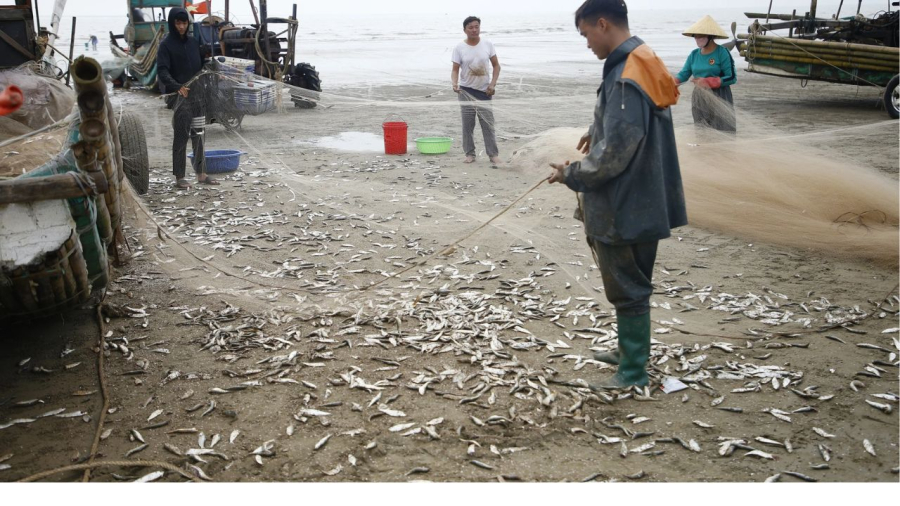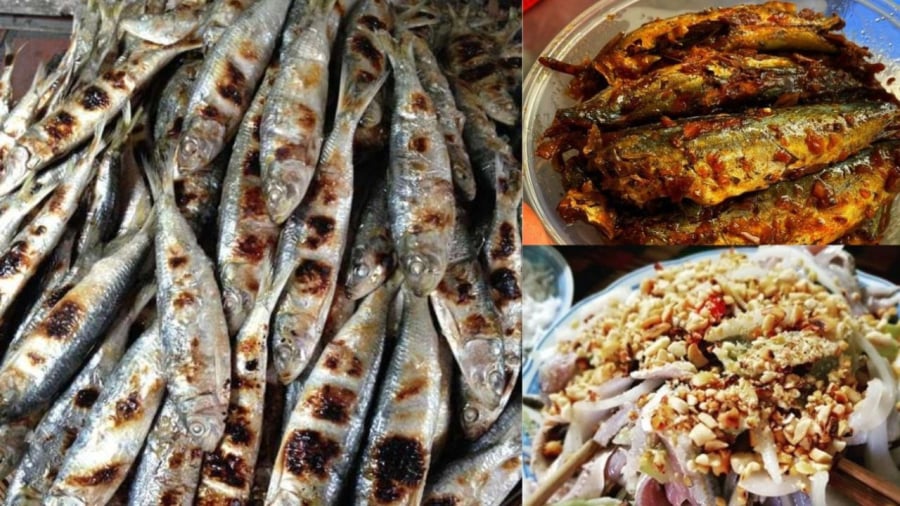From January to March is the time when Vietnamese mackerel is in season. Coastal fishermen are catching mackerel and making a good profit. The price of mackerel is very low, around 30,000 VND at the fishing areas and fluctuates between 100,000 and below at the markets.
Mackerel is a fish that is rich in omega-3 fatty acids, which helps improve vision and enhance brain function.
When it comes to omega-3, people often think of salmon because a serving of salmon can provide up to 2,150 mg of omega-3 along with high-quality protein and other nutrients like vitamin D, selenium, and vitamin B. However, mackerel is also rich in omega-3 just like salmon. In fact, a serving of mackerel can also provide up to 2,150 mg of omega-3. While the price of salmon ranges from 300,000 to 600,000 VND, mackerel is much cheaper, costing only about 1/5 of that price. Moreover, buying mackerel at the market allows you to enjoy fresh Vietnamese mackerel.

Mackerel is a low mercury fish
Fatty fishes like salmon, tuna, and mackerel belong to the group of fish with high mercury levels. That’s why when it comes to consuming fatty fish, experts often advise women who are pregnant and young children to be cautious of mercury levels. Mercury can cause brain damage and nerve damage. When consuming food with mercury, the excretion time is long, and mercury can accumulate in the body over time.
Mackerel is believed to have lower mercury risk compared to salmon. Therefore, choosing mackerel is a smart choice that can help replace the expensive salmon dish. Of course, you should not completely give up salmon from your diet, but to ensure cost savings and still maintain nutritional value, you should combine and increase the consumption of mackerel.
Omega-3 is a beneficial fatty acid for the body that helps reduce the risk of cardiovascular disease. Omega-3 helps reduce neutral fat, increase good cholesterol, prevent stroke caused by plaque buildup in arteries, and blood clots in the body.

Mackerel can be prepared into various Vietnamese dishes
Compared to salmon, mackerel can be cooked into various delicious dishes that are in line with Vietnamese culinary culture. Some popular mackerel dishes include mackerel salad, braised mackerel, grilled mackerel, mackerel with tomato sauce, and crispy fried mackerel, which can be enjoyed in daily meals. Mackerel is more convenient to use in family meals and meets the eating habits of both adults and children.

Mackerel has many other health benefits
In addition to being rich in omega-3 and low in mercury, mackerel also has many other benefits:
Mackerel is a good source of protein
Similar to other types of fish, mackerel is rich in protein and low in calories, making it good for weight loss diets. Adding mackerel to your diet can provide a better source of protein for the body compared to protein from meat.
Mackerel is rich in antioxidants and vitamins
Mackerel contains powerful antioxidants, especially vitamin E and selenium, which help neutralize free radicals and reduce aging effects. Mackerel is also an excellent source of vitamin D, reducing the risk of dangerous diseases such as cancer and heart disease. Additionally, mackerel contains various vitamins and minerals such as vitamin B12, vitamin B3, phosphorus, potassium, and more.
Mackerel is rich in iron, preventing anemia
Anemia is still a common condition among Vietnamese women, children, and the elderly. Consuming mackerel, which is high in iron, helps increase blood production in the body.
Mackerel enhances brain health
The omega-3 fatty acids EPA and DHA in mackerel are good nutrients that help improve memory, reduce stress, and improve mood. Vitamin B12 in mackerel specifically supports better human nervous system function.
Mackerel provides calcium for strong bones
The high levels of vitamin D and calcium in mackerel are good nutrients that promote strong bones. Consuming mackerel can help reverse muscle and bone loss in older adults.
Since it is currently mackerel season, I encourage you to incorporate this type of fish into your family’s meals.
Mackerel is an excellent source of omega-3 fatty acids, providing up to 2,150 mg per serving, which is comparable to salmon. However, mackerel has lower mercury levels than salmon, making it a safer choice for pregnant women and young children. The lower mercury risk in mackerel means you can enjoy the health benefits of omega-3 without the same concerns.
- Reduced risk of cardiovascular disease due to omega-3 content.
- Improved memory, reduced stress, and enhanced mood due to omega-3 fatty acids EPA and DHA.
- Better nervous system function thanks to vitamin B12.
- Stronger bones due to high levels of vitamin D and calcium.
- Prevention of anemia with its high iron content.
- Weight loss benefits as it’s rich in protein and low in calories.
- Antioxidant and anti-aging properties from vitamin E and selenium.
- Reduced risk of cancer and heart disease with its vitamin D content.
Mackerel is a versatile fish that can be prepared in various delicious Vietnamese dishes. Some popular options include mackerel salad, braised mackerel, grilled mackerel, mackerel with tomato sauce, and crispy fried mackerel. It’s a convenient choice for family meals, catering to the tastes of both adults and children.





































